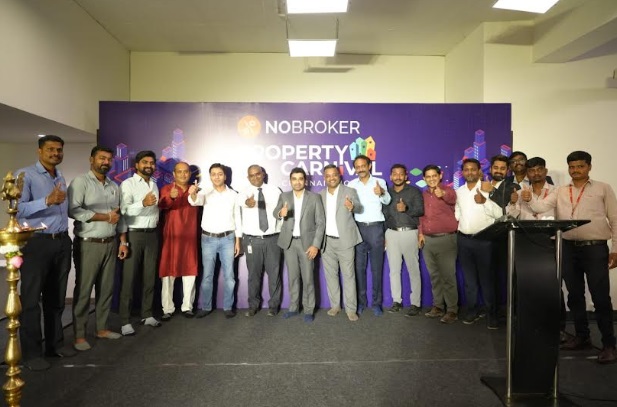In India, more than 100 million voters participated in the Lok Sabha election first phase. The estimated turnout ranged from 64 to 65%. There were reports of violence in various areas.
In the first phase of the Lok Sabha polls on Friday, over 100 million voters from 21 states and Union territories exercised their right to vote in 102 constituencies, marking the start of the largest democratic exercise in history, which will see nearly a billion people cast ballots over the next six weeks.
In Bahona village, Jorhat, Assam, on Friday, a woman casts her ballot during the first round of voting in the national election of India. (AP)
In Bahona village, Jorhat, Assam, on Friday, a woman casts her ballot during the first round of voting in the national election of India. (AP)
According to a top Election Commission of India (ECI) official, the preliminary turnout was between 64% and 65%.
GSSSB Exam Postponed: Gujarat Secondary Clerk Exams including Junior Clerk Postponed.
It is expected to rise once the final numbers are tallied by ECI by Saturday morning, as long queues were seen outside polling booths when voting officially closed at 6pm. In 2019, the turnout in these seats stood at 69.4%.
The EC, in a statement, said, “[V]oters reaching the Polling stations till the end of polling hour are allowed to cast their vote. Final figures will be known tomorrow after the scrutiny of form 17A.” Form 17A is the register of voters for every polling station.
The highest turnout was reported from Tripura West constituency in Tripura, where the contest is between Bharatiya Janata Party (BJP) candidate Biplab Kumar Deb and Congress’s Asish Kumar Saha.
Read Here: 64% turnout in Lok Sabha Phase 1 elections, most states see dip from 2019
The lowest turnout was reported from Nawada in Bihar, where Vivek Thakur (BJP), Shravan Kushwaha (Rashtriya Janata Dal), and Ranjit Kumar (Bahujan Samaj Party) are in contest.
The first phase — which is also the largest of seven phases — saw all seats from Tamil Nadu, Uttarakhand, Arunachal Pradesh, Mizoram, Nagaland, Meghalaya, Sikkim, Andaman and Nicobar, Lakshadweep and Puducherry go to the polls.
The other six phases will take place over the next six weeks, with the results on June 4. Prime Minister Narendra Modi is seeking a historic third consecutive term, hoping to become only the second PM after Jawaharlal Nehru to achieve this feat.
“First phase, great response! Thank you to all those who have voted today. Getting EXCELLENT feedback from today’s voting. It’s clear that people across India are voting for NDA in record numbers,” Modi tweeted late on Friday.
BJP lawmaker Sudhanshu Trivedi said there is a wave of support in favor of PM Modi and it was evident from the voter turnout in the first phase.
“By the end of the first phase, one more thing became clear… Rahul Gandhi has still not been able to muster the courage to file nomination from Amethi,” he said, adding that the BJP is confident that it will be successful in increasing its victory margin by winning more seats in the first phase than the last time.
The Indian National Developmental Inclusive Alliance (INDIA) is hoping to use a mix of regional leaders, local issues, and discontent over jobs to deny the BJP a third straight victory.
Congress president Mallikarjun Kharge urged voters to cast their ballots carefully and asserted that a new era of economic empowerment and equal opportunities beckons them.
“The fight to protect our Constitution and Democracy begins today,” he said in a post on X.
“My dear citizens, from 21 States and UTs who are voting in the First Phase of the Lok Sabha elections, I request you to carefully cast your vote. A future where NYAY (justice) awaits you. A new era of Economic Empowerment and Equal Opportunities beckons you,” the Congress chief said.
Focus was also on the 12 Lok Sabha seats in Rajasthan, where the other 13 go to the polls in the next phase. The BJP had swept Rajasthan in 2019 and is contesting all seats. The Congress, on the other hand, is contesting 22 and left three for its alliance partners Rashtriya Loktantrik Party (RLP), Communist Party of India (Marxist), and Bharat Adivasi Party (BAP). The state recorded a turnout of 57.3%, compared to 63.9% in 2019.
In Uttar Pradesh, eight seats in the western part of the state went to the polls. The state recorded a turnout of 59.8%, compared to 66.6% in 2019.
In Assam, five of the 14 seats went to the polls. The state recorded a turnout of 72.4%, but a comparison with previous elections was not possible because of seats being redrawn.
In the Maoist-ravaged Bastar, an assistant commandant of the Central Reserve Police Force (CRPF) sustained injuries when a pressure cooker bomb planted by Maoists exploded and a CRPF jawan died in an accidental grenade explosion during an area domination exercise.
The seat — the only one to go the polls in Chhattisgarh on Friday — recorded a turnout of 67.1%, compared to 66.2%in 2019.
For the first time, people in 56 villages in Bastar in Chhattisgarh cast their vote in polling booths set up in their villages, said the poll body in its statement.
The poll body pointed out that in Andaman and Nicobar Islands, voters belonging to the tribal communities came out in large numbers. The Shompen tribe of Great Nicobar made history by casting a vote for the first time.
In 2019, the general elections recorded a turnout of 67%, the highest since the first election in 1951-52.








